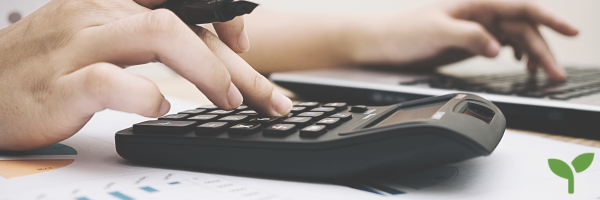
Mindset: The GROW Model
20th June 2023
Mindset: Scarcity vs. Abundance Mentality
17th July 2023
Filing your personal tax return can be a daunting task, but with proper knowledge of the expenses you can claim, you can significantly reduce your tax liability and maximise your savings. In this blog post, we will recap the expenses that can be claimed in a personal tax return for HMRC, focusing on key deductions that individuals can take advantage of when preparing their tax filings.
If you are self-employed or operate as a sole trader, you can claim various expenses related to your business activities. These expenses include office rent or home office expenses, utility bills, business insurance premiums, marketing and advertising costs, professional fees (accountants, consultants, etc.), and travel expenses incurred for business purposes. We recap a few of them here.
Simplified Expenses
Did you know that if you are self-employed there is a simplified way of calculating some of your business expenses using flat rates instead of working out your actual business costs? Of course you don’t have to use simplified expenses, you can decide if it suits your business. However you can use these simplified expenses if you are either a Sole traders or Business partnerships that have no companies as partners. You can read more in this blog linked below and also on the HMRC website here. You can also use HMRC’s Simplified Expenses Checker to see if you would benefit from being on Smplified Expenses. you can access the checker here.
Sole traders can claim ‘use of home as office’ under HMRC’s simplified expenses system. This equates to £10 per month for 25-50 hours worked at home per month, £18 for 51-100 hours, and £26 for 101 hours or more. This is usually best for anyone who owns their house with a repayment mortgage. For those with an interest-only mortgage, or who rent, using the calculation method is usually more effective. This would involve collating all your household utilities for the year (gas and electric, water, council tax, rent/mortgage interest) and working out a proportion of your costs depending on the floorspace utilised whilst working from home, and the percentage of time used.
Our clients will be provided with a detailed spreadsheet so that the calculations can be done quickly. For vehicle expenses, if you have chosen actual expenses, you are unable to change to simplified expenses for the duration of that vehicle’s ownership.
Travel Expenses
If you need to travel for business purposes, you can claim expenses for transportation, accommodation, meals, and parking fees. However, it’s important to note that these expenses should be exclusively for business-related travel and not personal trips. They should also be for travel that is outside of the normal working pattern. You can read more on this blog that we created. There are different rules for itinerant traders so if you are required to travel to different client sites for your job, you will need to seek further advice.
Charitable Donations
As a sole trader, you cannot put charitable contributions through the business. Instead, you should log any Gift Aid donations in your self assessment. You may be able to claim tax relief if you are a Higher Rate tax payer. Keep proper records of your donations, including any Gift Aid declarations, to support your claims.
Pension Contributions
Contributions to registered pension schemes are generally eligible for tax relief. This means that the contributions you make can be deducted from your taxable income, potentially reducing your overall tax liability. However, tax laws and regulations may change, so it’s always prudent to consult with a qualified tax professional if in any doubt. Please note that you should not include any pension contributions made through employment, as the tax relief has already been claimed.
Other Allowable Deductions
There are various other deductions and allowances available that can be claimed depending on your circumstances. These may include training and development, legal and professional fees, office equipment (such as a desk or bookcase), uniform or PPE, professional subscriptions and certain marketing expenses. It is advisable to consult with a tax professional or refer to HMRC’s official guidelines to determine eligibility and specific requirements for these deductions.
Conclusion
Maximising tax savings through allowable deductions is a smart way to reduce your tax liability and retain more of your hard-earned money. By understanding the expenses that can be claimed in your personal tax return for HMRC, you can ensure compliance with tax regulations while optimising your tax savings. However, tax laws and regulations may change, so it’s always prudent to consult with a qualified tax professional or refer to official HMRC guidelines to stay up-to-date and accurately claim deductions in your personal tax return.
If we can assist you with completing your self assessment please do get in touch and book in a Discovery Call.




